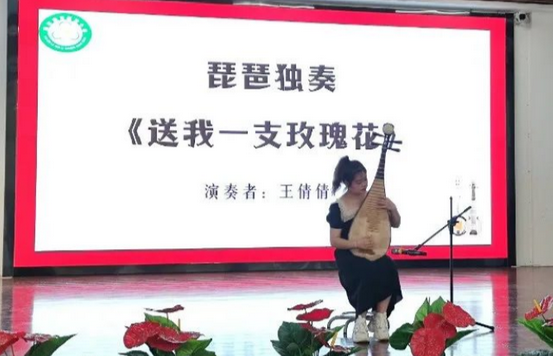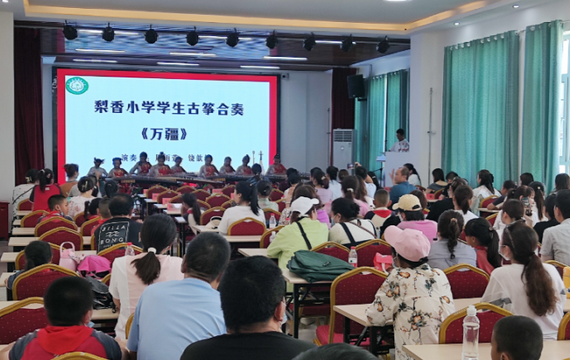Promote the excellent traditional Chinese culture and practice the education of "cultural nourishment in Xinjiang"
To promote the excellent traditional Chinese culture and effectively implement the educational connotation of "cultural nourishment in Xinjiang". Recently, the voluntary service of Chinese national instruments on campus and the exhibition of characteristic courses of Korla Lixiang Primary School jointly held by the Korla Musicians Association and Korla Lixiang Primary School in Xinjiang kicked off.

Pipa solo "Send Me a Rose"
At the activity site, nearly 10 artists from the Korla Musicians Association played music and song titles with zither, pipa, erhu, Morin khuur, bamboo flute and other instruments. The music was melodious and beautiful, presenting a wonderful audio-visual feast for all teachers and students.

Guzheng ensemble "Wanjiang" brought by the characteristic course class of Lixiang Primary School
It is understood that this activity is sponsored by the Federation of Literary and Art Circles of Korla City, and undertaken by the Musicians Association and Korla Lixiang Primary School. It aims to let students immerse themselves in the charm of national musical instruments, constantly feel the connotation of national musical instrument works, let children contact with national music from an early age, feel the charm of China's excellent traditional culture, and pass on national music and culture through exposure to traditional musical instruments.
 渝公网安备 50010702504639号
渝公网安备 50010702504639号